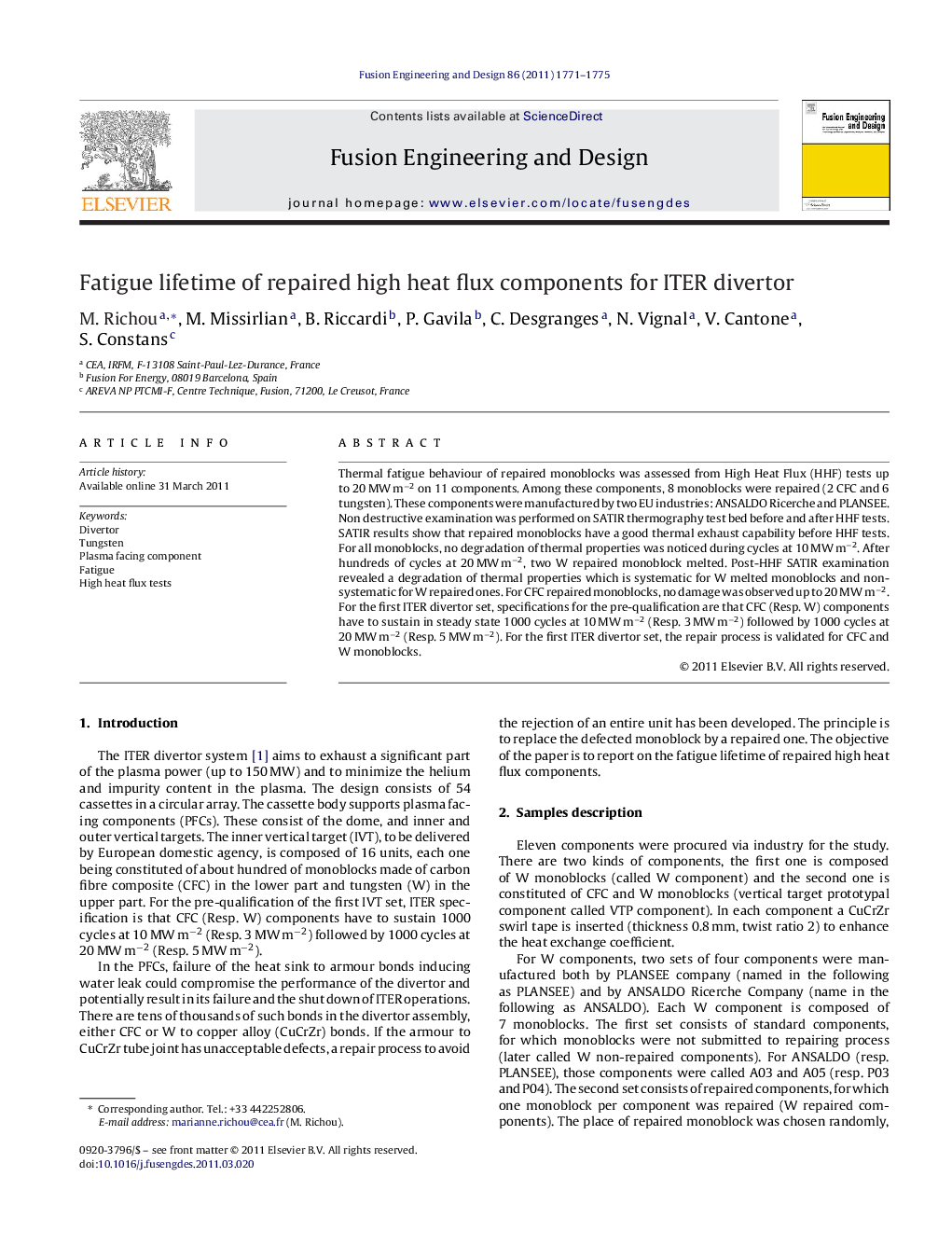| Article ID | Journal | Published Year | Pages | File Type |
|---|---|---|---|---|
| 271846 | Fusion Engineering and Design | 2011 | 5 Pages |
Thermal fatigue behaviour of repaired monoblocks was assessed from High Heat Flux (HHF) tests up to 20 MW m−2 on 11 components. Among these components, 8 monoblocks were repaired (2 CFC and 6 tungsten). These components were manufactured by two EU industries: ANSALDO Ricerche and PLANSEE. Non destructive examination was performed on SATIR thermography test bed before and after HHF tests. SATIR results show that repaired monoblocks have a good thermal exhaust capability before HHF tests. For all monoblocks, no degradation of thermal properties was noticed during cycles at 10 MW m−2. After hundreds of cycles at 20 MW m−2, two W repaired monoblock melted. Post-HHF SATIR examination revealed a degradation of thermal properties which is systematic for W melted monoblocks and non-systematic for W repaired ones. For CFC repaired monoblocks, no damage was observed up to 20 MW m−2. For the first ITER divertor set, specifications for the pre-qualification are that CFC (Resp. W) components have to sustain in steady state 1000 cycles at 10 MW m−2 (Resp. 3 MW m−2) followed by 1000 cycles at 20 MW m−2 (Resp. 5 MW m−2). For the first ITER divertor set, the repair process is validated for CFC and W monoblocks.
